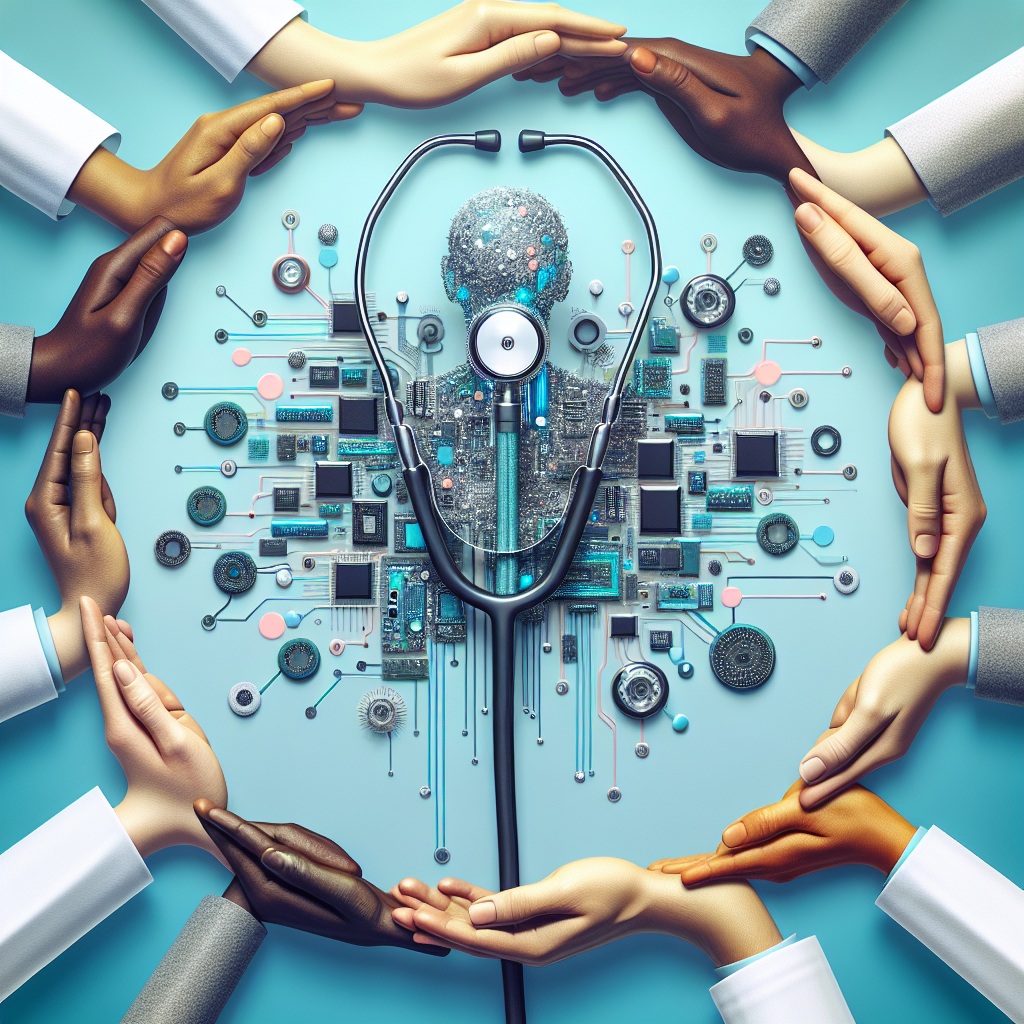The Democratization of Healthcare through AI
In recent years, the healthcare industry has been experiencing a significant transformation, thanks to the advancements in artificial intelligence (AI) technology. AI has the potential to democratize healthcare by making it more accessible, affordable, and efficient for all individuals, regardless of their socio-economic status or geographical location. This article will explore how AI is revolutionizing the healthcare industry and the ways in which it is helping to democratize healthcare for everyone.
One of the key ways in which AI is democratizing healthcare is through its ability to improve access to medical services. In many parts of the world, there is a shortage of healthcare professionals, particularly in rural and underserved areas. AI can help bridge this gap by providing virtual consultations and diagnoses, allowing individuals to receive medical advice and treatment without having to travel long distances to see a doctor. This is particularly beneficial for individuals who may have limited mobility or financial resources, as it allows them to access healthcare services from the comfort of their own homes.
In addition to improving access to medical services, AI is also helping to make healthcare more affordable for individuals. By automating certain tasks and processes, AI can help reduce the cost of healthcare services, making them more accessible to individuals who may not be able to afford traditional medical care. For example, AI-powered chatbots can assist patients with scheduling appointments, answering medical questions, and providing information on medications, reducing the need for costly administrative staff. AI can also help healthcare providers streamline their operations, leading to cost savings that can be passed on to patients in the form of lower fees and reduced out-of-pocket expenses.
Furthermore, AI is helping to make healthcare more efficient by improving the accuracy and speed of medical diagnoses. AI algorithms can analyze large amounts of medical data, such as patient records, lab results, and imaging scans, to identify patterns and trends that may not be apparent to human physicians. This can help doctors make more accurate diagnoses and develop more effective treatment plans, leading to better outcomes for patients. AI can also help healthcare providers identify high-risk patients and intervene early to prevent or manage chronic conditions, reducing the need for costly hospitalizations and emergency room visits.
Overall, the democratization of healthcare through AI is transforming the way medical services are delivered and accessed, making it more inclusive, affordable, and efficient for all individuals. As AI continues to advance, we can expect to see even greater improvements in healthcare outcomes and patient satisfaction, ultimately leading to a healthier and more equitable society.
FAQs:
Q: How is AI being used in healthcare?
A: AI is being used in healthcare in a variety of ways, including virtual consultations, medical imaging analysis, personalized treatment plans, predictive analytics, and administrative tasks such as scheduling appointments and managing medical records.
Q: Is AI replacing human doctors?
A: AI is not replacing human doctors, but rather augmenting their capabilities. AI can assist doctors in making more accurate diagnoses, developing treatment plans, and managing patient care, but ultimately, human judgment and expertise are still needed in healthcare.
Q: Is AI safe and secure for use in healthcare?
A: Yes, AI technologies used in healthcare are subject to strict regulations and guidelines to ensure patient safety and data security. Healthcare providers must comply with privacy laws and adhere to best practices in cybersecurity to protect patient information.
Q: How can individuals access healthcare services through AI?
A: Individuals can access healthcare services through AI-powered platforms and apps that offer virtual consultations, symptom checking, medication reminders, and other healthcare-related services. These platforms are typically user-friendly and can be accessed from smartphones, tablets, or computers.
Q: What are the potential risks of using AI in healthcare?
A: Some potential risks of using AI in healthcare include data privacy concerns, algorithm bias, errors in diagnosis or treatment recommendations, and the potential for job displacement among healthcare professionals. It is important for healthcare providers to address these risks and implement safeguards to ensure the safe and effective use of AI in healthcare.

